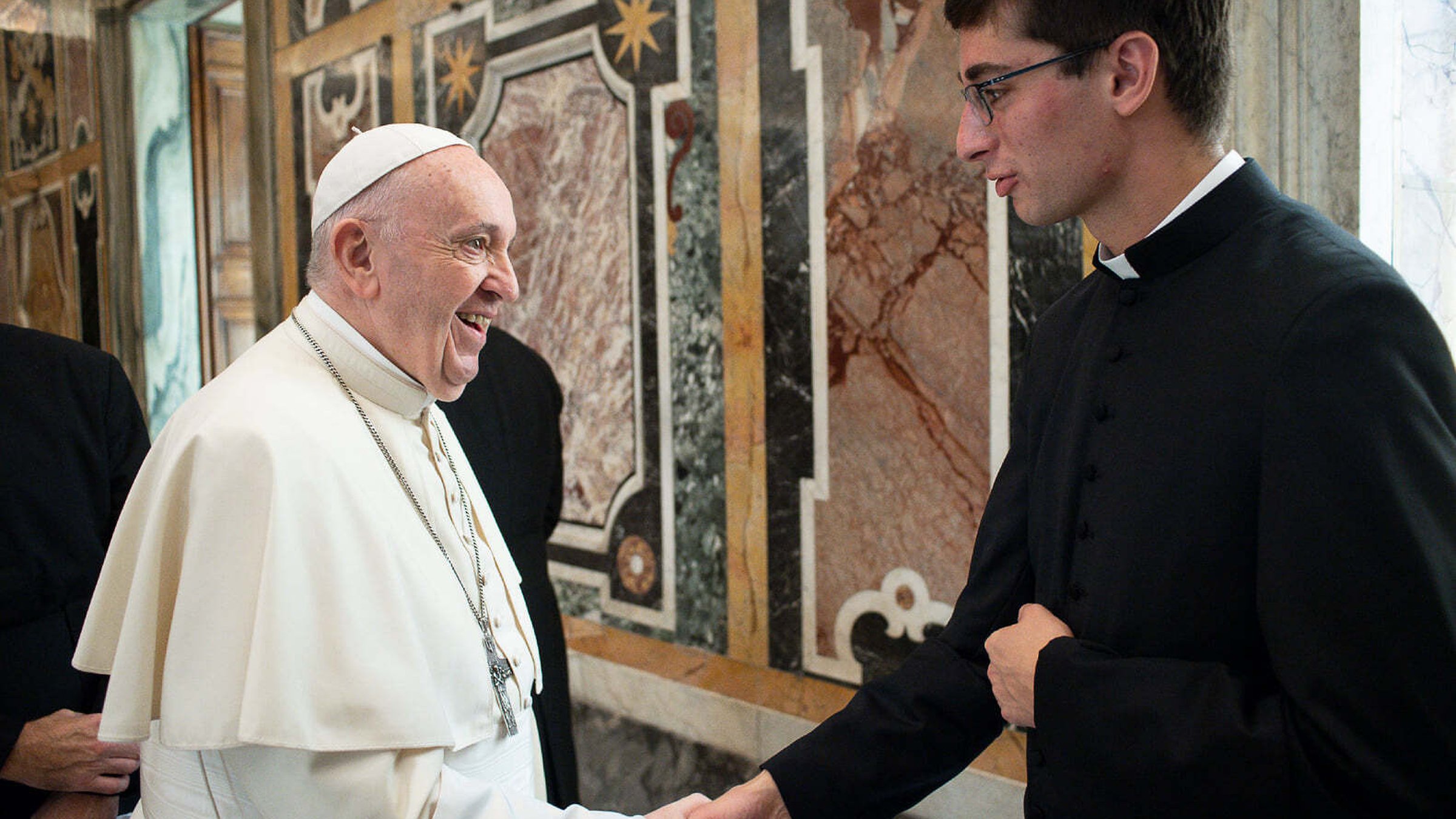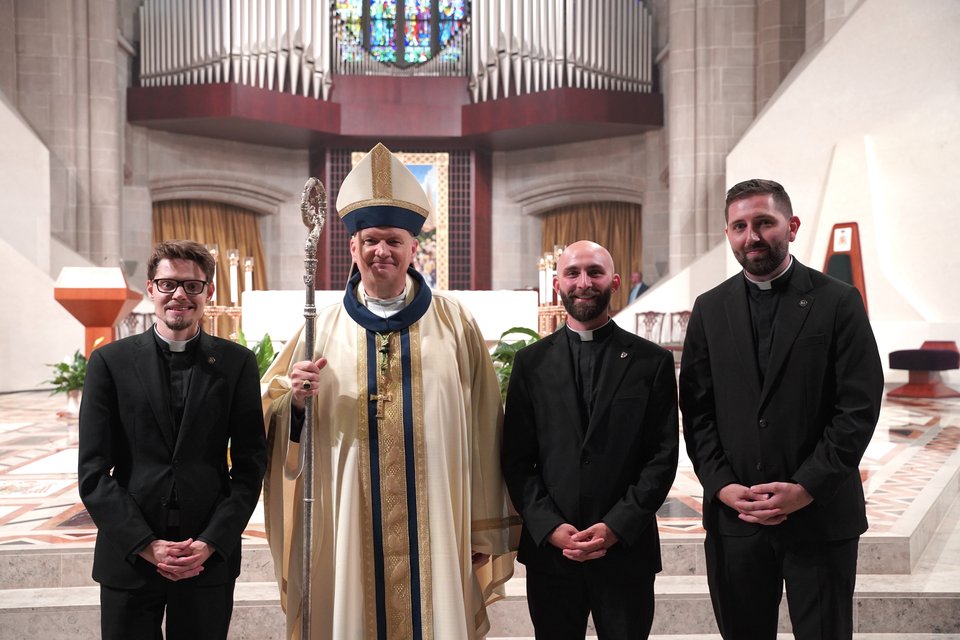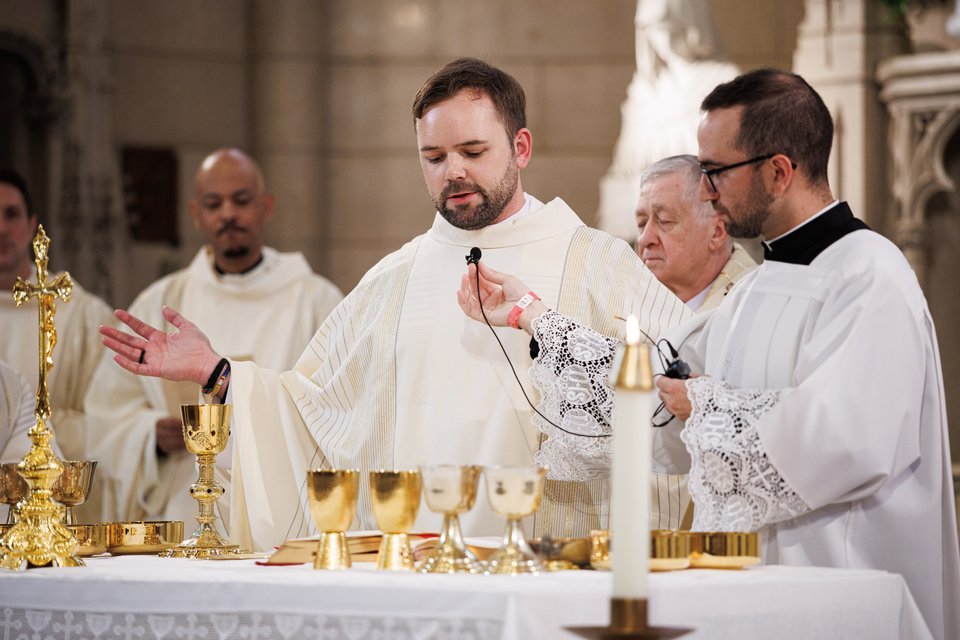Archdiocese of Detroit has been sending seminarians to study at the Pontifical North American College for more than a century
DETROIT — As students from around southeast Michigan resume their school routine this fall, Ryan Asher is also heading back to class — in Italy.
Asher, a seminarian studying for the priesthood for the Archdiocese of Detroit, is beginning his fourth year of studies in Rome at the Pontifical North American College.
Founded in 1859, the college serves as the house of priestly formation for seminarians from dioceses across the United States and Australia. The men who study there take academic classes at universities elsewhere in Rome with seminarians from around the world; Detroit seminarians attend classes at the Pontifical Gregorian University, founded as the Roman College by St. Ignatius of Loyola in 1551. All instruction and written materials are presented in Italian. Seminarians who study in Rome do so at the request of their archbishop.
Asher was sent to Rome in 2020 when in-person classes were not allowed because of the pandemic. While most seminarians who are preparing for their first year in Rome enroll in an immersive summer language program in Italy, Asher spent the summer prior to his departure taking Zoom classes to learn the language. For seven weeks, he spent six hours each day, five days per week in class on his computer.
But while learning the language was a challenge when he first arrived in Rome, Asher came to appreciate the shared experience of the language struggle with other students and faculty.
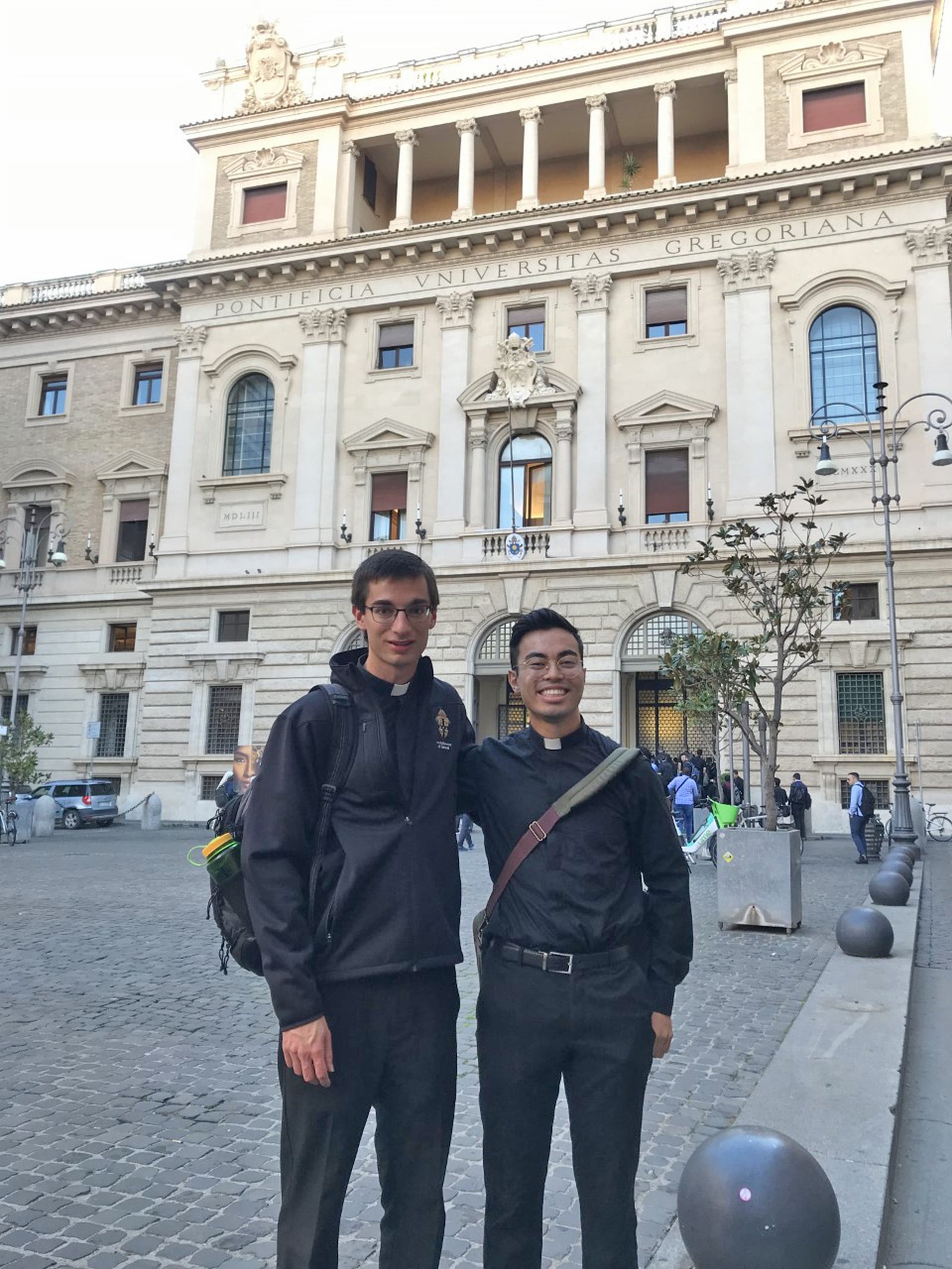
“There are professors whose native language is French teaching in Italian, and Polish and Spanish professors in addition to Italian and American. So it’s not just a language difference but an entire way of thinking because there’s a difference in cultures as well,” Asher told Detroit Catholic. “It’s a good challenge because you’re being pressed to think a little differently than you’re used to.”
The North American College was founded just two years before the American Civil War broke out. The Archdiocese of Detroit has a long history of sending men to study there. According to the earliest archdiocesan records, Detroit priest Fr. Emil Wolfstyn was ordained in 1891 and attended “the American college of Rome,” indicating beginning his studies there in 1886 or 1887.
Though Asher’s experience in Rome is different than Fr. Wolfstyn’s thanks to air travel and cellphones, the most important elements remain the same: the spiritual, pastoral, intellectual and human formation, as well as the ancient city itself.
“The entirety of the city gives testimony to the truth of the faith,” said Asher, who is scheduled to be ordained a transitional deacon Sept. 28 in Rome. “The reason anything is preserved here is because of the faith, because the Church and the Vatican is here. Every street in the city, in some way or another, is testifying to the truth of the Gospel.”
Fr. Robert Spezia, vicar for clergy and consecrated life for the Archdiocese of Detroit, studied in Rome from 1992 to 1997. He later returned for his doctorate in sacred theology from 2000 to 2002.
“Going to Rome as a seminarian was a very intense experience. There were profound blessings and a richness to it. At the same time, there were profoundly difficult moments that first year,” Fr. Spezia recalled. “Your classes are in Italian and you don’t come home for two years, yet you’re walking down streets that saints and martyrs walked.”
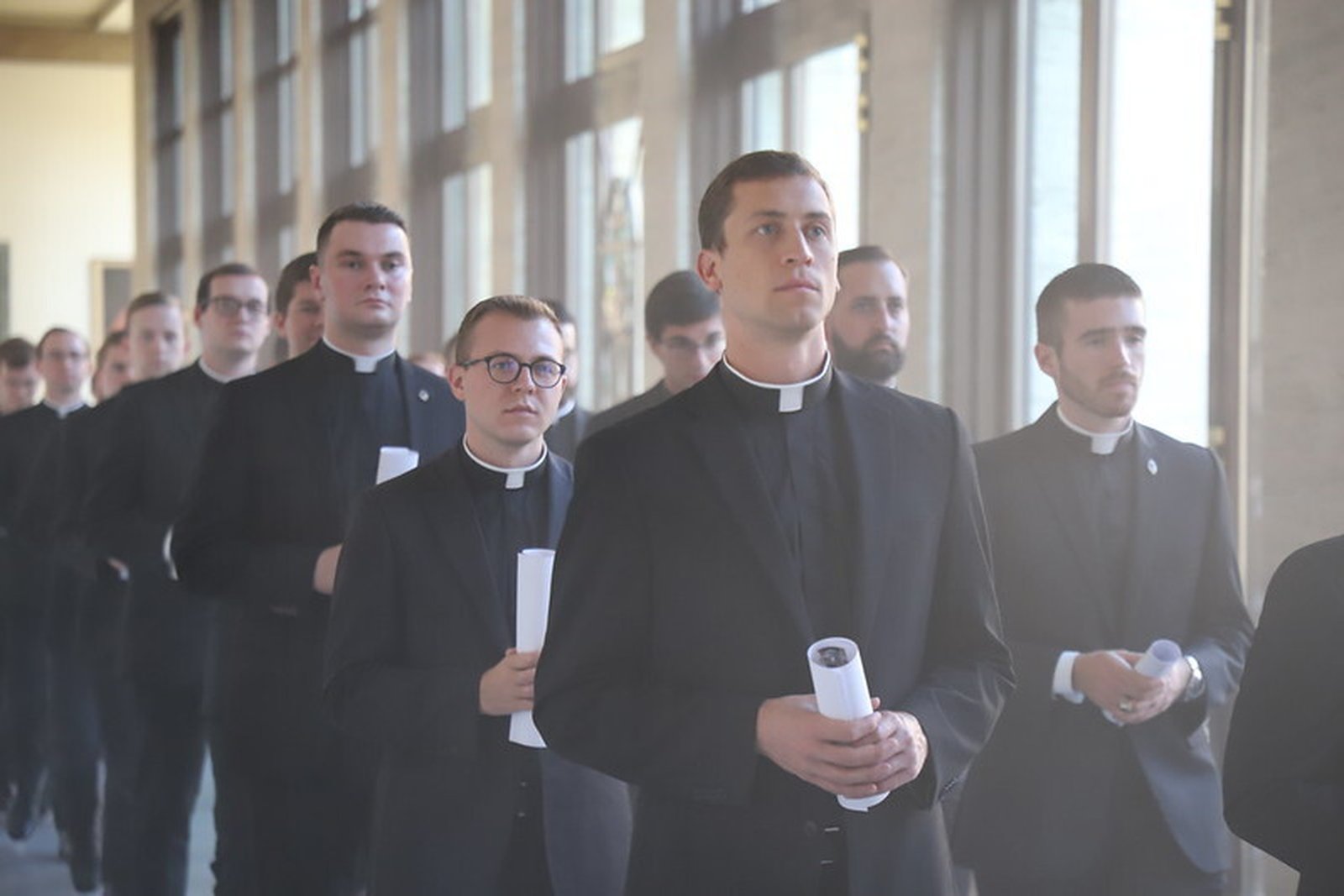
Fr. Spezia met Pope St. John Paul II during his time in Rome, and St. Teresa of Calcutta visited the North American College to talk to the seminarians there, he recalled.
“One of the great blessings is that it blows the walls off your mental constructs. We in the United States can be provincial in our thinking,” Fr. Spezia said. “Studying there, you get a much more intense experience of space and time, with space being the world and time being the history of the Church all around you.”
Fr. David Tomaszycki, who is currently serving as priest-secretary to Detroit Archbishop Allen H. Vigneron, studied in Rome from 2012 to 2017. He treasured being “in the shadow of the pope,” as the North American College is less than a mile from St. Peter’s Basilica. Fr. Tomaszycki references Acts 5:15: “They even carried the sick out into the streets and laid them on cots and mats so that when Peter came by, at least his shadow might fall on one or another of them.”
Fr. Tomaszycki served Mass for Pope Benedict XVI in December 2012, just a month and a half before the Holy Father announced his resignation. In March 2013, Fr. Tomaszycki was at the front of the crowd in St. Peter’s Square when Pope Francis was elected. Since then, he's met Pope Francis twice.
Traveling to other countries on weekends and school breaks enriches the education of the seminarians and introduces them to cultures beyond Italy, Fr. Tomaszycki said. He once visited 14 countries in 14 days; during his last year at the North American College, he says he “accidentally” wrote a travel book when he began to make notes about his travels for his fellow seminarians. The notes became pages, and soon the pages became a self-published book, "Fr. Dave’s Travel Guide."
“We live in a world that says it wants diversity but really doesn’t want diversity,” Fr. Tomaszycki said. “Real diversity is seeing the differences — the diversity — of the cultures and the people. That’s when the richness and universality of the Church comes alive.”
While there are many blessings to being a seminarian in Rome, there are also difficulties. Being far from home and not speaking the language can feel isolating in the beginning.
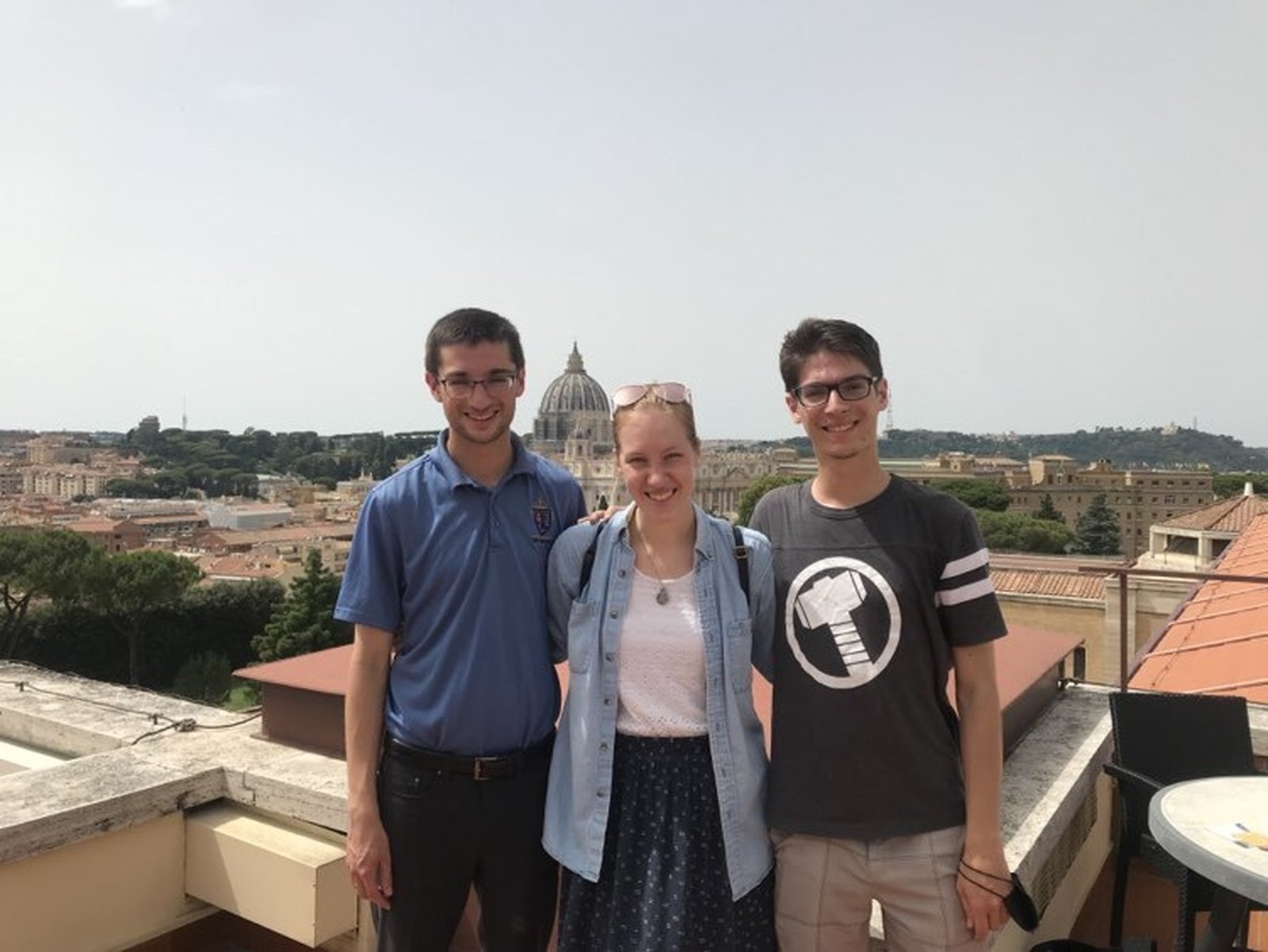
“It’s definitely a sacrifice to be away from family and classmates from Detroit, and from the priests that you know back home,” Asher said. “But that’s a blessing, too, because it’s formative. It’s drawn me closer into a relationship with Jesus because there have been times when I don’t know what else I have, but I know I have Jesus.”
Sometimes, the communication with those back home can take a creative turn. While Fr. Tomaszycki was in Rome, he and his sister, Maria, were pen pals, trading letters regularly. She mentioned that she was learning Morse code, just for fun. Two days later, a fellow seminarian at the North American College told Fr. Tomaszycki that he also was learning Morse code, just for fun. His friend showed him the Morse code alphabet so he could surprise Maria with a letter written in dots and dashes.
While he enjoys catching up with friends back home, Asher also values getting to know seminarians from around the United States and the world. Talking with them about the issues they face in their dioceses, as well as the commonalities across all dioceses, helps him see clearly that the Church is universal and united.
“Something (Archbishop Vigneron) told me from the start is that the unique experience of studying in Rome will bless the diocese when — God willing — I am a priest one day,” Asher said. “After being here, I’m really looking forward to telling the story of the lives of the saints in a very human way, and to be able to share how much those stories have affected me personally.”
When he’s not studying, praying or exploring the city, Asher serves as the head organist at the North American College and manages the pub at the college for his fellow seminarians. His favorite place is on the roof of the seminary overlooking Rome. Every 15 minutes, the bells from St. Peter’s chime.
“The roof has been a very peaceful place for me to pray and reflect over the years,” Asher said. “The longer you’re here, the more you start to see the particular churches and buildings. Soon everything that was once completely unknown becomes familiar.”
Copy Permalink
Vocations


